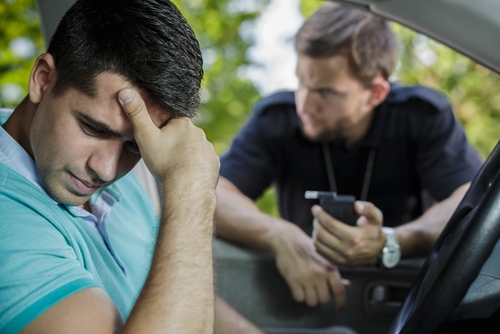
Drunk and drugged drivers cause thousands of accidents each year, often with devastating results. Fortunately for victims, if they can prove that the driver was drunk at the time of the accident, they are typically entitled to compensation for their accident-related losses, including their medical expenses, lost income, lost quality of life, and physical and emotional pain and suffering.
For victims, proving that a driver was drunk or high typically involves obtaining a police report that indicates that the police believe that a driver was under the influence of drugs or alcohol at the time of the accident. This type of evidence is usually gathered as part of a criminal investigation but can be used by plaintiffs in order to prove that the driver that caused their accident was impaired, and therefore negligent.
The police can obtain evidence of impairment in a number of ways. Some of the most common include the following:
- Breathalyzer testing – One of the most common ways that police obtain evidence that a driver was drunk is by administering a Breathalyzer to the driver. A Breathalyzer operates by taking a sample of the driver’s breath and using it to extrapolate his or her blood alcohol content (BAC). If a driver’s BAC is over .08, he or she is considered impaired as a matter of law in Georgia.
- Field sobriety testing – Many police departments have adopted some variant of the Standardized Field Sobriety Test developed by the National Highway Traffic Safety Administration (NHTSA). Field sobriety testing typically involves the officer asking a driver to perform several physical and mental tasks while the officer watches for signs of intoxication. Common tests that police use when conducting field sobriety testing include the one-leg stand, the walk-and-turn, and the horizontal gaze nystagmus test.
- Observations of a driver’s appearance, behavior, and physical condition – Police are trained to recognize the signs of alcohol or drug intoxication. In some cases, they are able to make a professional determination that a person is drunk or high by merely observing their appearance, behavior, or other characteristics. For example, people who are drunk tend to smell like alcohol, have slurred speech, glassy eyes, and have memory problems. In some cases, an officer may be confident to make the determination that a person is impaired based on observations.
If you have been involved in an accident with an impaired driver, it’s important to remember that the investigation conducted by the police in support of a potential criminal prosecution, which has nothing to do with whether you’ll be able to recover compensation. In other words, while it may feel good to see the driver who hit you get dragged off in cuffs, the police are not going to make sure that the driver (or the driver’s insurance) will be paying for your repair bills, medical expenses, and other accident-related losses. For this reason, it’s vital that you retain an experienced attorney to represent you and get you the compensation to which you are entitled.
Call Brauns Law Accident Injury Lawyers, PC to Speak with a Personal Injury Attorney
Accidents caused by impaired drivers can cause extremely serious injuries and leave victims with devastating economic and non-economic losses. Attorney David Brauns is an experienced Georgia personal injury lawyer who has dedicated himself to helping victims obtain the compensation they deserve. To discuss your case with Mr. Brauns, call our office today at 404-418-8244 or contact us online.














